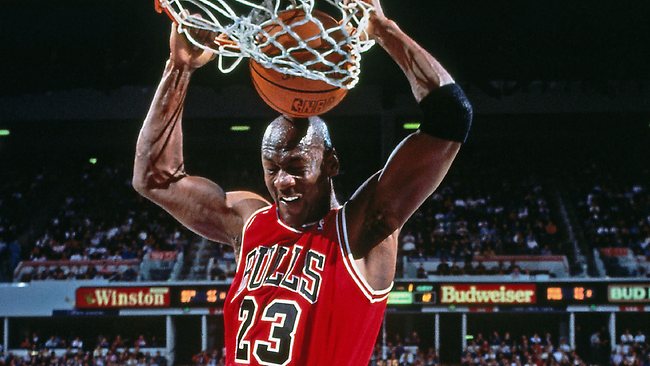March 2022 Update: Tom Brady has 'unretired' and will be returning to the NFL for a 23rd season. This adds another lesson for success from Tom Brady - leave on your own terms at the time of your choosing and don't be afraid to change your mind!
Tom Brady announced his retirement on February 1, 2022 after having won six Championship Titles with the New England Patriots and a seventh with Tampa Bay after his decisive 31-9 victory at SuperBowl LV.
There are some lessons we can take in from his career and the path he took to achieve his amazing career.
1) Perseverance Is Key
Before his 5th Super Bowl victory, Tom Brady's fourth Championship was his first in 10 years. He won in 2002, 2004 and 2005 and it looked like he would win a literal double handful of Superbowl rings before he retired. However, he experienced heartbreaking losses to the New York Giants in 2008 and 2012 and it looked like his time was past.
However, he shook off the disappointments and kept working toward winning another SuperBowl. It was the same drive that earned him an Orange Bowl victory with the Michigan Wolverines after 3 years as a back-up. This same drive also earned him a starting job with the Patriots after being drafted 199th overall in the 2000 NFL Draft! He was often considered to be too skinny and too slow and lacking a good enough arm for the pros. He showed enough determination and hard work to the Patriots that it landed him the starting job when the opportunity arose. The rest is history.
2) Focus On Your Goal
Tom Brady knows that his job is to lead his team to victory as a quarterback. His goal has always been to win Superbowl championships. As he said, "To me, football is so much about mental toughness, it's digging deep, it's doing whatever you need to do to help a team win and that comes in a lot of shapes and forms."
That is his focus. He could have been easily been distracted by the millions that he has earned and his marriage to Gisele Bundchen.
Even two weeks hearing about 'Deflate-gate' didn't distract him enough from making sure he was 100% ready for the big game. Football brought him his success and he didn't forget that.
3) Trust The People Around You
A quarterback depends on his teammates and his coach. Whether in work or in sports or in most fields of life, you're often only as good as the people around you. Brady has worked with his coach Bill Belichick for his whole career. It hasn't been a harmonious relationship the entire time but they're on the same page more often than not.
Brady has also worked with a myriad of different teammates throughout his career and manages to adapt every time there's a significant change of personnel. One example is Ron Gronkowski who plays tight end. When former Patriot tight end Aaron Hernandez was arrested and when Brady didn't quite mesh with his wide receivers, he relied on Gronkowski for a lot of offence. As in work, you should always take advantage if you find yourself working extremely well with a particular colleague!
4) Don't Be Afraid Of A Change In Scenery
5) Don't Let Age Be A Factor
There is a lot more than can be said about Tom Brady. Many people look at him and think everything was handed to him on a silver platter. However, digging deeper into his career shows how much hard work and defying the odds can lead to success. The rest of us won't be multiple Superbowl champions that way but it can lead us to our own individual achievements.
There are some lessons we can take in from his career and the path he took to achieve his amazing career.
1) Perseverance Is Key
Before his 5th Super Bowl victory, Tom Brady's fourth Championship was his first in 10 years. He won in 2002, 2004 and 2005 and it looked like he would win a literal double handful of Superbowl rings before he retired. However, he experienced heartbreaking losses to the New York Giants in 2008 and 2012 and it looked like his time was past.
However, he shook off the disappointments and kept working toward winning another SuperBowl. It was the same drive that earned him an Orange Bowl victory with the Michigan Wolverines after 3 years as a back-up. This same drive also earned him a starting job with the Patriots after being drafted 199th overall in the 2000 NFL Draft! He was often considered to be too skinny and too slow and lacking a good enough arm for the pros. He showed enough determination and hard work to the Patriots that it landed him the starting job when the opportunity arose. The rest is history.
2) Focus On Your Goal
Tom Brady knows that his job is to lead his team to victory as a quarterback. His goal has always been to win Superbowl championships. As he said, "To me, football is so much about mental toughness, it's digging deep, it's doing whatever you need to do to help a team win and that comes in a lot of shapes and forms."
That is his focus. He could have been easily been distracted by the millions that he has earned and his marriage to Gisele Bundchen.
Unlike many pro athletes who become seduced by the high life and forget what brought them their fame, Brady doesn't forget. His work ethic is still extremely high even after all of these years and a serious knee injury which kept him out of the 2008 season.
Even two weeks hearing about 'Deflate-gate' didn't distract him enough from making sure he was 100% ready for the big game. Football brought him his success and he didn't forget that.
3) Trust The People Around You
A quarterback depends on his teammates and his coach. Whether in work or in sports or in most fields of life, you're often only as good as the people around you. Brady has worked with his coach Bill Belichick for his whole career. It hasn't been a harmonious relationship the entire time but they're on the same page more often than not.
Brady has also worked with a myriad of different teammates throughout his career and manages to adapt every time there's a significant change of personnel. One example is Ron Gronkowski who plays tight end. When former Patriot tight end Aaron Hernandez was arrested and when Brady didn't quite mesh with his wide receivers, he relied on Gronkowski for a lot of offence. As in work, you should always take advantage if you find yourself working extremely well with a particular colleague!
4) Don't Be Afraid Of A Change In Scenery
After 20 years with the Patriots, Tom Brady signed a two-year contract with the Tampa Bay Buccaneers. This was truly the end of an era and it ended a partnership with Bill Belichick that yielded 6 SuperBowl Championships. Many people that Brady wouldn't be able to succeed at the age of 43 in a new city. He was joining a team that was 7-9 the previous year and not projected to do much, even with Brady as quarterback. The effects of the Covid pandemic also meant that Tom Brady wouldn't be able to have any exhibition games to learn about Tampa's coaching style and systems, not to mention the strengths and weaknesses of his new teammates. Did Brady overcome the odds? Indeed, he did!
Tom Brady is 43 years old and says he wants to play at age 45 and beyond. With proper diet and training, he has kept himself in top shape. Doing so, he was able to defeat Patrick Mahomes who is almost 2 decades his junior. As a wise quote said, "Aging is not lost youth but a new stage of opportunity and strength...".
There is a lot more than can be said about Tom Brady. Many people look at him and think everything was handed to him on a silver platter. However, digging deeper into his career shows how much hard work and defying the odds can lead to success. The rest of us won't be multiple Superbowl champions that way but it can lead us to our own individual achievements.









































